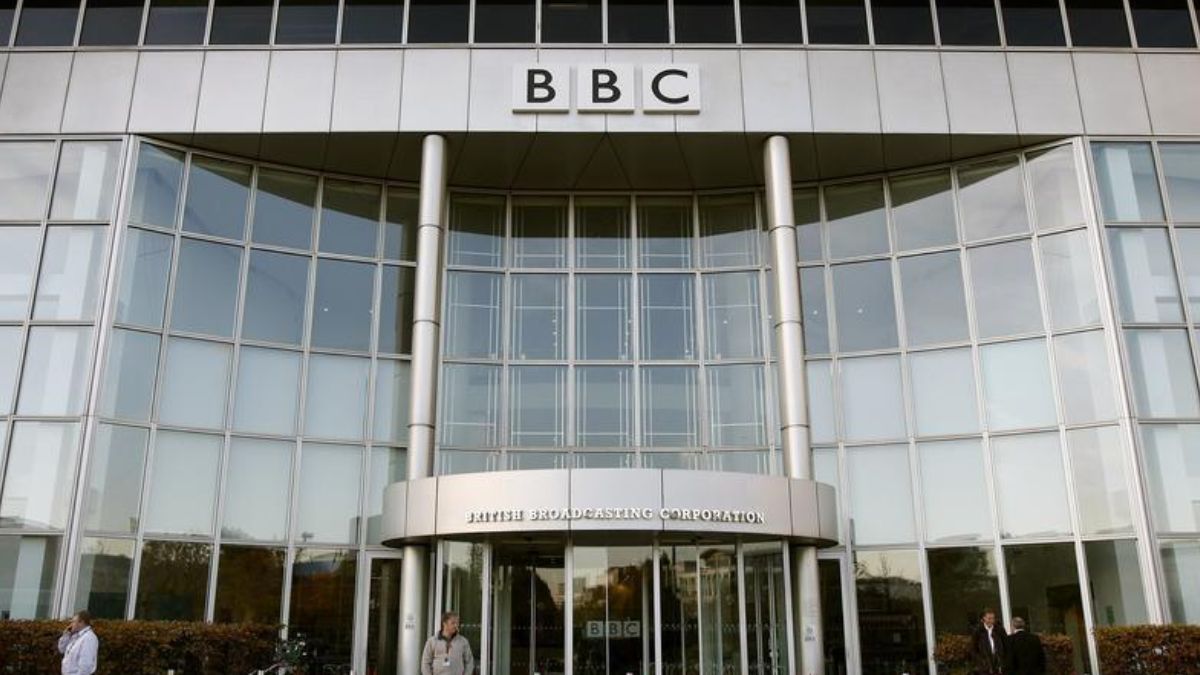BBC Income Crisis: £1bn Drop Sparks Unprecedented Challenges

Table of Contents
The Causes of the BBC's £1 Billion Income Drop
The £1 billion drop in BBC income stems from a confluence of factors affecting the BBC funding model. These include a decline in licence fee revenue, increased competition from streaming platforms, inflationary pressures, and reduced commercial revenue.
-
Declining Licence Fee Revenue: The cornerstone of BBC funding, the licence fee, is experiencing a significant decline. A shrinking number of households are paying the fee, largely attributed to the rise of streaming services like Netflix and Amazon Prime, as well as increasing instances of licence fee evasion. This has led to legal battles and ongoing debates about enforcement and modernization of the system. The BBC is actively pursuing strategies to combat evasion, but the overall trend remains a significant challenge to its financial stability.
-
Increased Competition from Streaming Platforms: The rise of streaming giants such as Netflix, Amazon Prime Video, Disney+, and others poses a considerable threat to traditional broadcast television. These platforms offer vast libraries of on-demand content, attracting viewers away from scheduled programming and significantly impacting advertising revenue. Market share data reveals a clear shift in viewing habits, with streaming services capturing a larger portion of audience time. This intensified competition directly affects the BBC’s ability to generate revenue through advertising and sponsorship, a crucial element of its diversified funding sources.
-
Inflationary Pressures and Rising Costs: The BBC, like many organizations, faces rising costs across the board. Inflationary pressures are impacting production costs, salaries, and operational expenses. Producing high-quality programs, especially those involving large casts, intricate sets, and extensive location shoots, has become significantly more expensive. Specific examples include the increased costs of filming on location, coupled with rising energy prices that affect studio operations, presenting a substantial challenge to the BBC's budget.
-
Reduced Commercial Revenue: While the licence fee forms a significant portion of its income, the BBC also relies on commercial activities, including advertising sales and program distribution. However, competition from other media companies, both public and private, makes generating significant revenue in this area increasingly difficult. The BBC must navigate a delicate balance between commercial success and maintaining its impartiality and public service obligations, which can constrain its commercial strategies.
Impact of the Crisis on BBC Programming and Services
The BBC income crisis has far-reaching implications for the broadcaster's programming and services, potentially leading to significant changes in how the BBC operates.
-
Potential Cuts to Programming: The most immediate consequence of reduced funding is the potential for cuts to popular programs. This could involve reducing the number of episodes of flagship shows, cancelling less-popular programs altogether, or scaling back on ambitious, high-budget productions. Such cuts would inevitably impact the quality and variety of programming available to viewers. Specific departments, such as drama or documentaries, might face disproportionate budget reductions.
-
Job Losses and Restructuring: To manage the financial crisis, the BBC might resort to significant job losses and restructuring measures. This could involve redundancies across various departments, leading to a reduction in staffing levels and potential changes in organizational structure. The impact would be felt across the entire workforce, from on-screen talent to behind-the-scenes personnel.
-
Reduced Local News and Radio Coverage: The crisis could disproportionately impact local news and radio services. These services play a vital role in informing and engaging local communities, and cuts to their funding could severely limit their ability to function effectively. Reduced coverage could lead to a decline in local accountability and community engagement.
-
Impact on Online and Digital Services: The BBC's online and digital platforms are crucial in reaching a wider audience. Budget cuts could compromise the investment in these platforms, impacting website development, technological updates, and the quality of online content. This could limit the BBC's ability to compete effectively in the digital media landscape.
Potential Solutions and Future of the BBC
Addressing the BBC income crisis requires innovative and sustainable solutions. Various proposals are being debated, but each carries implications and challenges.
-
Reform of the Licence Fee System: Reforming the licence fee system is a critical consideration. This could involve adjusting the fee amount, broadening the scope of who pays it, or exploring alternative mechanisms for collecting it. However, any changes must carefully balance the needs of the BBC with public opinion and political considerations.
-
Increased Commercial Activities: The BBC could explore increasing its commercial activities while safeguarding its impartiality and public service remit. This might involve seeking further commercial partnerships, expanding its program sales to international markets, or developing new revenue streams through licensing or merchandise.
-
Government Funding Increase: One potential solution could be an increase in government funding. However, this option faces considerable political challenges, requiring government support and navigating budgetary constraints. Securing additional government funding might be difficult, given the competing demands on public resources.
-
Subscription Model Exploration: The BBC could explore introducing a subscription model, either alongside or as a replacement for the licence fee. This would necessitate careful consideration of pricing strategy and how to integrate it into the existing system while ensuring accessibility for all. This option can be compared to successful models adopted by international broadcasters.
Conclusion
The BBC's £1 billion BBC income crisis poses a serious threat to its future. The decline in licence fee revenue, competition from streaming services, and rising costs have created unprecedented challenges. Addressing this necessitates a multifaceted approach, encompassing reforms to the licence fee system, exploring increased commercial activity, and considering alternative funding models. The BBC future depends on finding sustainable solutions that safeguard its ability to deliver quality programming and essential public service broadcasting. Understanding the complexities of this BBC income crisis is crucial for ensuring its continued success. Let's engage in a constructive dialogue to secure the future of the BBC and its vital role in the media landscape.

Featured Posts
-
 Farage Faces Backlash From Teaching Union Over Far Right Allegations
May 03, 2025
Farage Faces Backlash From Teaching Union Over Far Right Allegations
May 03, 2025 -
 Blay Styshn 6 Hqayq Wasatyr
May 03, 2025
Blay Styshn 6 Hqayq Wasatyr
May 03, 2025 -
 Why Graeme Souness Loves Lewis Skelly A Matter Of Attitude
May 03, 2025
Why Graeme Souness Loves Lewis Skelly A Matter Of Attitude
May 03, 2025 -
 Fortnites Negan Jeffrey Dean Morgan Discusses The Characters In Game Presence
May 03, 2025
Fortnites Negan Jeffrey Dean Morgan Discusses The Characters In Game Presence
May 03, 2025 -
 Glastonbury Festival 2025 Dont Miss Out Resale Tickets
May 03, 2025
Glastonbury Festival 2025 Dont Miss Out Resale Tickets
May 03, 2025
